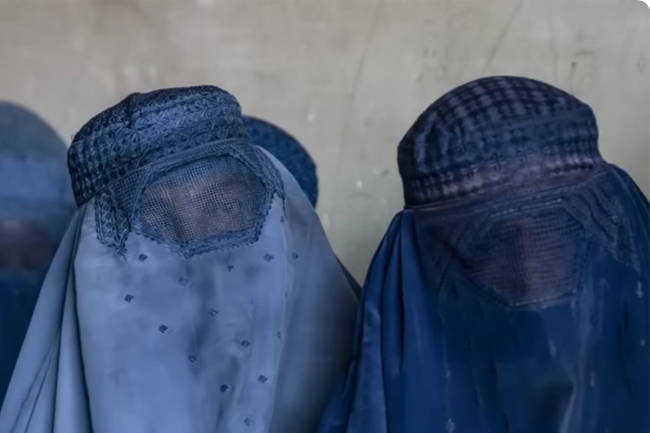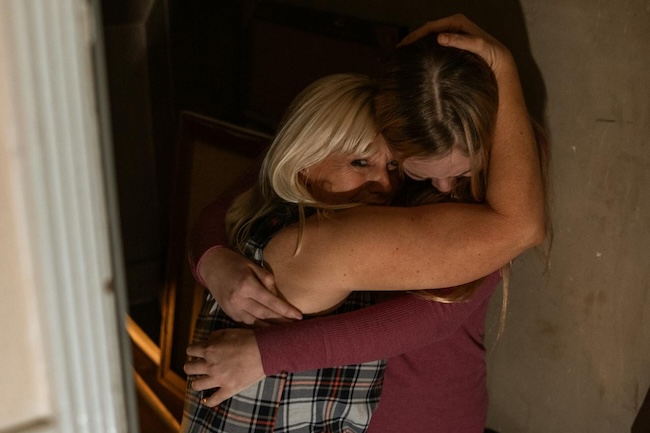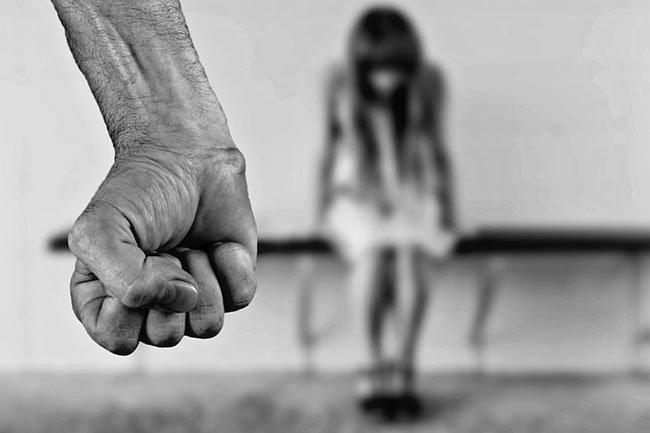It is estimated by the Global Slavery Index that around the world, there are up to 45.8 million people who are currently being held as slaves for either sexual or labour purposes.
Through my travels and work alongside my foundation Project Monma, I have come across slavery more than once. From Mauritania’s descent-based slavery system, Argentina’s human trafficking rings and sex tourism in Madagascar, the horror of slavery can take multiple forms.
What has become apparent through my work is that all of these forms of slavery exist because there is a market for them. There are enough people who are willing to buy women and children to make trafficking and slavery a profitable business. If we have any hope of bringing this horrific practice to an end, in the multiple forms that it occurs, we need awareness.
Argentina
In Argentina, thousands of women and girls are tricked and sold into sexual slavery each year. Often lured by false offers of work, they find out instead that they have been sold to a brothel.
Slavery in Argentina first gained significant attention after the case of Marita Veron, the daughter of Susana Trimarco, a middle-class woman from the small city of Tucuman in the north of Argentina. After Marita Veron disappeared from her home, it was discovered she had been kidnapped as a 23-year-old and sold into sexual slavery.
Susana, desperate to find her daughter, attempted to infiltrate prostitution rings around Tucuman. Working alongside a special police trafficking task force, they managed to save thousands of girls from trafficking networks. Susana started the organisation, Maria de los Angeles, which provides counselling and legal support to women and girls affected by trafficking and domestic violence.
El misterio del joven con el que se escapó Marita Verón (Investigacion) por @CeSanz1 https://t.co/INVvIk4m2u pic.twitter.com/Lxpw9rvkKw
— TribunaDePeriodistas (@TRIBUNAcomar) July 9, 2017
Lujan Araujo, a social worker from Maria de los Angeles, explained the nightmare facing women and girls when they are first taken to a brothel:
"They try to break them with torture. They are brutally raped and burned with cigarettes. They do the most horrible things that you can imagine."
Julio Benjamin Fernandez, the head of the human trafficking division of the police in Tucuman, said:
"We found a 13-year-old girl who was kidnapped and sold by her 28-year-old cousin. There are many girls of 13 or 14 years old who are sold by their mothers because of economic reasons."
Marita has never been found. In 2012, 13 people were put on trial for her kidnapping. They were, however, released because of insufficient evidence.
Reading: Confronting #Argentina's people-traffickers @BBC http://t.co/IC5jsWNR
— End Slavery Now (@EndSlaveryNow) April 4, 2012
Madagascar
In the impoverished nation of Madagascar, both human trafficking and sex tourism run rife. In cases where there are few other opportunities for survival, women and girls, including children, become involved with prostitution.
Soloarivelo Anntsa, of the Ministry of Population and Social Protection and Women, said in some places in Madagascar there are many problems with girls being forced into prostitution:
The foreigners who come here prefer girls rather than women. This is happening in the north of the country, like in Nose Be, in areas where there is a lot of tourism. They are mostly French who come to buy sex, but also from other nationalities.
Women and girls of all ages are being sold, especially children.
Daniel Silva from the International Organization of Migration in Antananarivo said that while many of the customers are foreign, there are also local men that buy women in Madagascar.
In Nose Be, a sign on my hotel bedroom door warns me not to bring children into the room for sex. Yet, as I sit outside the hotel each evening, I see older men bringing very young girls up to their rooms. Nobody stops them to check. The sex tourists, who are predominantly older French males, are obvious. They saunter through the town centre with a sense of arrogance and entitlement, many with girls less than half their age.
Fernindand, a young Malagasy man working in my hotel, says that the problem in Madagascar with prostitution is that there is so much poverty:
"The problem is the poverty. Customers can just pay the police and they won’t do anything."
Life is hard.
Silva agrees:
You see cases where as soon as a girl turns 12 or 13 her parents put them in Italian and French classes so that [they] can to speak to these clients and work as prostitutes, because it’s their main source of income.
It’s shocking because its not hidden. It’s a big business for everyone, the hotel owners, for the police.
There’s no punishment of these men at the moment and this is absolutely unacceptable.
Mauritania
In Mauritania, the slavery system is a little bit different. Mauritania has what is known as a "descent-based slavery" system. This means that if you are a female slave and you have a child, then that child will, too, become a slave.
Like in many of the countries in Africa, Mauritania is ethnically fragmented. The white Moors, as they are called, or the Arabs, have typically been the slave owners, while the Harratins, one of the black African groups in Mauritania, have typically been the slaves.
Slaves are most often used for domestic work in the house or on the land. In the case of women and girls, they are often forced into a sexual relationship with their master.
In 2007, slavery was formally abolished in Mauritania. However, a number of human rights groups in the country including IRA, Anti-Slavery International and SOS Esclaves, report that slavery is still being practised.
Salimata Lam, the national coordinator of SOS Esclaves, an organisation working to rescue slaves and prosecute their masters said,
"Considered as property, female slaves are usually raped by their masters."
"They try to break them with torture. They are brutally raped and burned with cigarettes."
One female slave, who managed to escape from her master told me:
"I was raped by my master, my master’s son and my master’s friends."
For women who become pregnant as a result of their rape, escape becomes all the more difficult. If she bears a child with her master, she has no rights over her child.
In the case, that a woman does manage to escape and wishes to press charges against her slave owner, she may then face the additional challenge of being imprisoned herself.
According to Sarah Matthewson from Anti-Slavery International, under Mauritania’s Sharia Law system, sex outside of marriage is punishable, including in cases of rape:
There have been cases where we have been trying to help women prosecute their masters and the state prosecutors have told us that the victim could have problems because she has children outside of marriage. It’s used as a deterrent for women to speak out in rape cases and to prosecute their slave owners because they could face charges themselves.
For many female slaves, the only option is to remain in slavery.
Johanna Higgs is an anthropologist and founder of Project Monma, which advocates for women’s rights around the world.
"I feel completely free– I am no longer a slave." Tatinatt on breaking free from generations of decent-based slavery https://t.co/Ik1JPCsFd1
— Anti Slavery (@Anti_Slavery) June 28, 2017

This work is licensed under a Creative Commons Attribution-NonCommercial-NoDerivs 3.0 Australia License
The Mauritian government is failing to eradicate modern slavery! @equaltimes exposes torture, rape https://t.co/63RogvlGPY @ilo @SkyNews
— Ntai Norman Mampane (@NNMampane1) July 7, 2017
Monthly Donation
Single Donation
Break the chains. Subscribe to IA.











